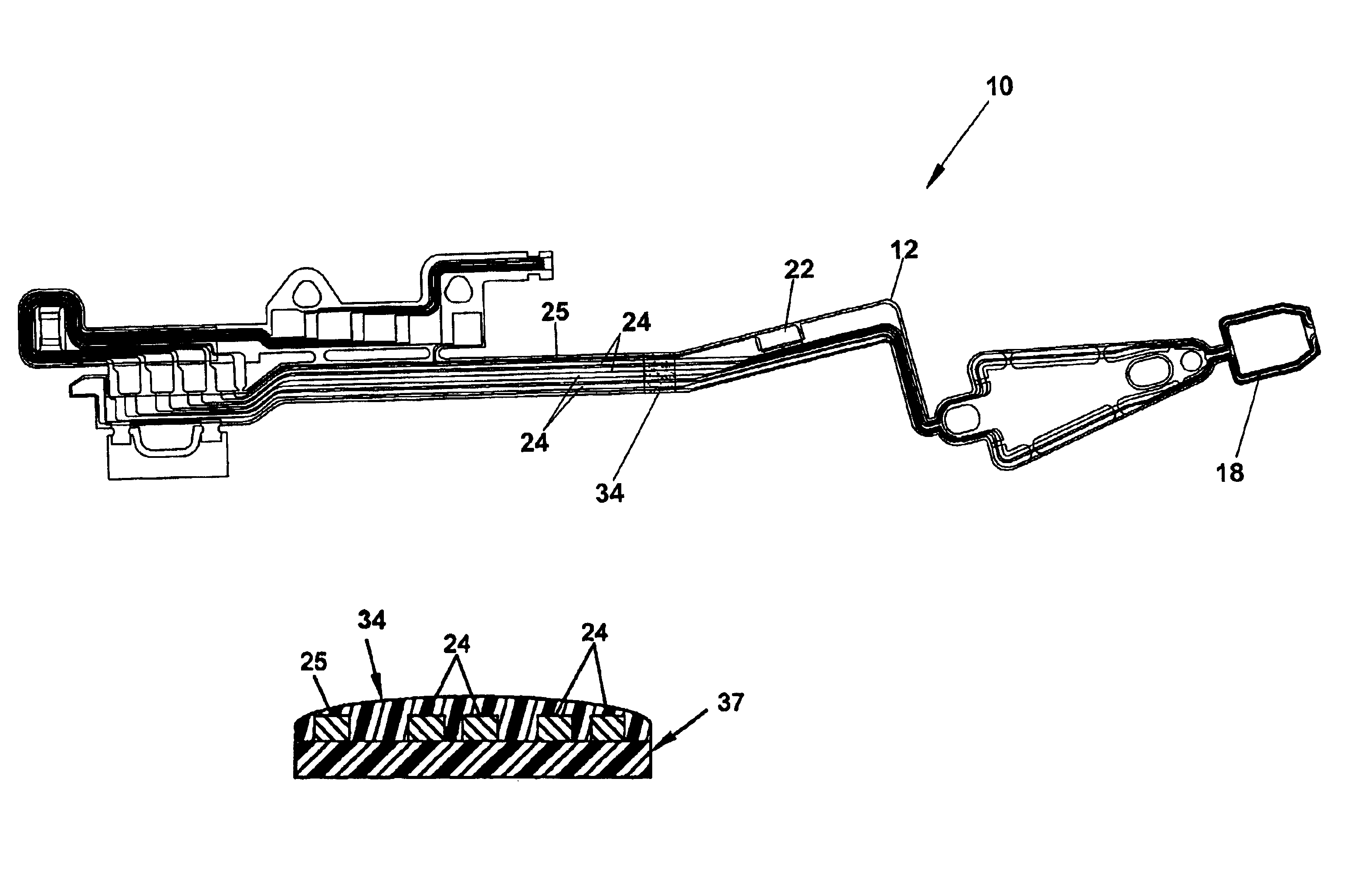Flex on suspension with dissipative polymer substrate acting as bleed resistor for minimizing ESD damage
a polymer substrate and esd protection technology, applied in the field of apparatus, can solve the problems of esd damage, transient current through the reader element, damage to the reader element, etc., and achieve the effect of minimizing the potential for esd damage and stable potential
- Summary
- Abstract
- Description
- Claims
- Application Information
AI Technical Summary
Benefits of technology
Problems solved by technology
Method used
Image
Examples
Embodiment Construction
[0032]FIGS. 1-6 illustrate the head gimbal assembly 10 according to the present invention. FIG. 1 is a top plan view of a head gimbal assembly 10 including a flex on suspension (FOS) 12 and a gimbal 18, wherein a dissipative polymer covercoat 34 of suitable known construction has been screened over a specified area of the transducer leads 24 and ground lead 25. FIG. 2 is an enlarged perspective top plan view, and FIG. 3 a cross-sectional view, of a head gimbal assembly 10. The dissipative covercoat 34 has been screened onto the transducer leads 24 and ground lead 25 over a window in the dissipative covercoat 34, thereby allowing a tight tolerance on resistance as it is more robust in thickness than in area. The application of the dissipative covercoat 34 over the FOS 12, transducer leads 24, and ground lead 25 is more easily assembled than other potential ESD solutions, because its application step is similar to a conventional covercoat by using a thermal cure instead of a UV cure. ...
PUM
 Login to View More
Login to View More Abstract
Description
Claims
Application Information
 Login to View More
Login to View More - R&D
- Intellectual Property
- Life Sciences
- Materials
- Tech Scout
- Unparalleled Data Quality
- Higher Quality Content
- 60% Fewer Hallucinations
Browse by: Latest US Patents, China's latest patents, Technical Efficacy Thesaurus, Application Domain, Technology Topic, Popular Technical Reports.
© 2025 PatSnap. All rights reserved.Legal|Privacy policy|Modern Slavery Act Transparency Statement|Sitemap|About US| Contact US: help@patsnap.com



